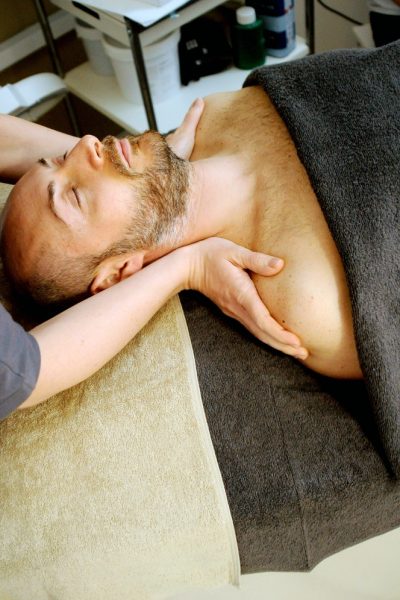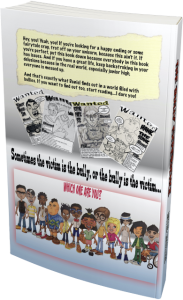How Do I Calm Myself Down? 11 Strategies I depend on.


By Antoine G Larosiliere
Sometimes in life there are situations that upset me but; when that happens how do I calm myself down?
Calming yourself down can be difficult for some people. Some people are more sensitive than others. When I was younger I had a difficult time managing my temper and needed to know; how do I calm myself down? I did a little research and looked back at what worked for me and comprised a list of tips that I found to be the most effective.
#1 Realize you’re anxious or angry
Knowledge is power and acceptance is transformative, so that should be the first things we do. Quickly reflect on your emotions and behavior and determine if you’re angry, or anxious. Once you’ve acknowledged what you’re feeling, express it yourself and begin to accept it. Once you’ve accepted it, those feelings will begin to subside some.
#2 Focus on Breathing
When you’re overwhelmed, anxious or upset; you’ll often resort to taking shallow quick breaths. According to experts, this can trigger your fight-or-flight response, and taking longer and deeper breaths can interrupt this process. Scott Dehorty, LCSW-C, of Delphi Behavioral Health says, ““breathing is the number one and most effective technique for reducing anger and anxiety quickly.” The following are breathing techniques that will assist you in calming down…
- 3 part breathing: To execute this technique, you must take one deep breath in and then exhale fully while paying attention to your body.
- Ratio 1:2: This technique requires you to slow down your exhalation so that it’s twice as long as your inhalation.
#3 Get some air
“Room temperature and air circulation has been proven to intensify anxiety or anger.”
If you have anxiety and you’re in a room that is hot with very little ventilation, that could trigger a panic attack. Room temperature and air circulation has been proven to intensify anxiety or anger. As soon as you can, remove yourself from this environment and get some fresh air. Go outside immediately if possible for at least a few minutes. Removing yourself from any unhealthy environment is beneficial and may help you calm down. This can also potentially help disrupt the thought process of being anxious or angry.
#4 Relax your posture
One of the immediate effects you’ll notice when you are anxious or angry in your poor posture due to your body tensing up. To immediately address your posture, sit up or stand up straight and drop your shoulders. To pull your shoulders down, bring your shoulder blades together and then down. Make sure you’re also breathing deeply while you do this. Breathing deeply also helps to relax the shoulders.
#5 Close your eyes

Experts say that our eyes are responsible for 80% of our sensory stimulation. Experts also recommend highly sensitive people should stay in bed with their eyes closed for a minimum of 9 hours. Closing your eyes gives your brain a break from most of your sensory stimulation. But it’s not always necessary to be sleeping to do this, just closing your eyes for some time can be a great benefit to all the tension. Less stimulation, means less tension.
#6 Question your irrational thoughts
Usually your thought process has a lot to do with the anxiety or anger you feel. Those thought processes are usually irrational and unhealthy. These thought’s consist of worst case, pessimistic scenarios, and glass half empty perspectives. These negative thoughts lead to more negative thoughts and ultimately an unhealthy cycle that creates anxiety and anger. When you’re having these unhealthy negative thoughts, ask yourself the following…
- What are the chances of this actually happening?
- Does that make any sense?
- Has anything like this ever happened to me before?
- Can I handle the worst that could happen?
#7 Do a physical activity to release the tension

Exercise is known for helping release tension and anxiety, so start there. Go walking, jogging, lift weights, play basketball or do kickboxing. Most sports activities or exercises can help calm you down and feel better. Physical activity can help increase the production of your brain’s endorphins. These endorphins are the brain’s feel-good neurotransmitters that help us feel better and release tension.
#8 Imagine yourself being calm
I’m sure you’ve probably heard of William Athur Wald’s quote “If you can imagine it, you can achieve it. If you can dream it, you can become it”. The mind is a powerful tool, so use it. Imagine yourself being calm as often as you can and you’ll eventually become calm. See your body relaxing, imagine yourself working through the process of reducing your stress and anxiety producing circumstances. Once you’ve created that mental picture of what being calm looks like, you can always revisit it when you’re anxious.
#9 Speak it into existence
Imagining yourself being calm, will require some reinforcements. Once you have a picture of what it looks like, now you can communicate those images to yourself out-loud. You need to hear what needs to be done and what will be done. Say to yourself, “this situation won’t get the best of me today,” “you are going to stay calm, because staying calm is what winners do.” Those words are supposed to shift your focus to give yourself time to allow healthy thoughts to lead you to better outcomes.
#10 Do something soothing

If you’re still having difficulty calming down still, you should try to soothe yourself with several means. Music has always been found to calm and soothe the mind in tense times, so put on your favorite songs or artists. The music can also lead to dancing which is also an activity that can help calm and relax your mind and body. Trying painting, drawing, or just doing something artistic would help. Maybe even something as simple as squeezing a stress ball or knitting a sweater.
#11 Find something that makes you laugh

There is nothing like the cure of laughter. Laughter is therapeutic and can decrease anxiety and make you feel good. One 2017 study found that “laughing regularly can lead to a decrease in blood pressure, which can make you feel more calm over time.” Find a funny movie, or T.V. show, go see a stand up comedy show, read funny memes or TikTok videos; anything you can find. Remember laughter is the best medicine.
If you or someone you care about are struggling with anxiety and stress, reach out to the Substance Abuse and Mental Health Services Administration (SAMHSA); or call the National Helpline at 1-800-662-4357. I hope this has been helpful. Also visit my YouTube channel for more insight to these topics.
The Bully Experience "Daniel's Story"

Sign up for our newsletter and Read the novel For Free!
Stay updated. Sign up for our newsletter, and get the first two chapters of The Bully Experience Daniel’s Story absolutely free.
